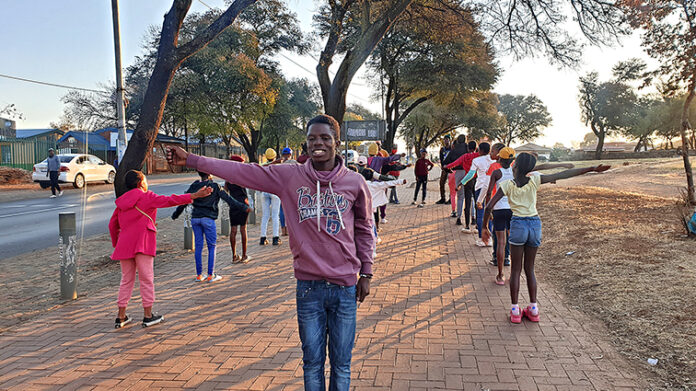Past and current pupils of the Morris Isaacson High School in Jabavu, Soweto – whose forerunners in 1976 were at the forefront of the June 16 student uprising against Bantu Education and Afrikaans as a medium of instruction – bemoan being captives of a bygone era.
While the student march that ended in a bloodbath and sparked nationwide resistance when police mowed down school children with automatic weapons started at Naledi High School, it was at Morris Isaacson High School where most pupils gathered to be addressed by one of the student leaders, Tsietsi Mashinini.
According to SA History Online, “the first students to gather together were at Naledi High. The mood was high spirited and jovial. At assembly, the principal gave support to the children and wished them good luck.
“The first chairperson of the Action Committee, Tepello Motopanyane, addressed them and informed them that discipline and a peaceful march were to be the order of the day.”
One of the pupils then, Dan Moyane, told SA History Online: “The first time we heard of it (the march) was during our short break. Our leaders informed the principal that students from Morris Isaacson were marching. We then joined one of the groups and marched.”
The day is now commemorated as Youth Day and the month of June is observed as Youth Month. This year it’s commemorated under the theme “Actively advancing socioeconomic gains of our democracy”.
Today as the country commemorates the 48th anniversary of the fateful march, 16-year-old Motlatsi Bokala and 39-year-old Nqaba Tshangatshanga feel there has been no continuation of the work done by their predecessors to improve education.
So engrossed are South Africans in the past struggle of their forerunners, said grade 10 pupil Bokala, that even current pupils don’t realise that the issue of the language of instruction is still a barrier to education today.
“We learn in English which is not our home language. It is not the home language of our teachers either.”
Tshangatshanga, a hawker whose stall is just across the road from Morris Isaacson, said employment and entrepreneurial opportunities should also
consider an individual’s willingness to learn and gain experience.
The Congress of South African Students national convener Scalo Mahladisa said June 16 should be a day to take stock of the progress made in championing the cause of a free education that is responsive to the economic needs of communities.




